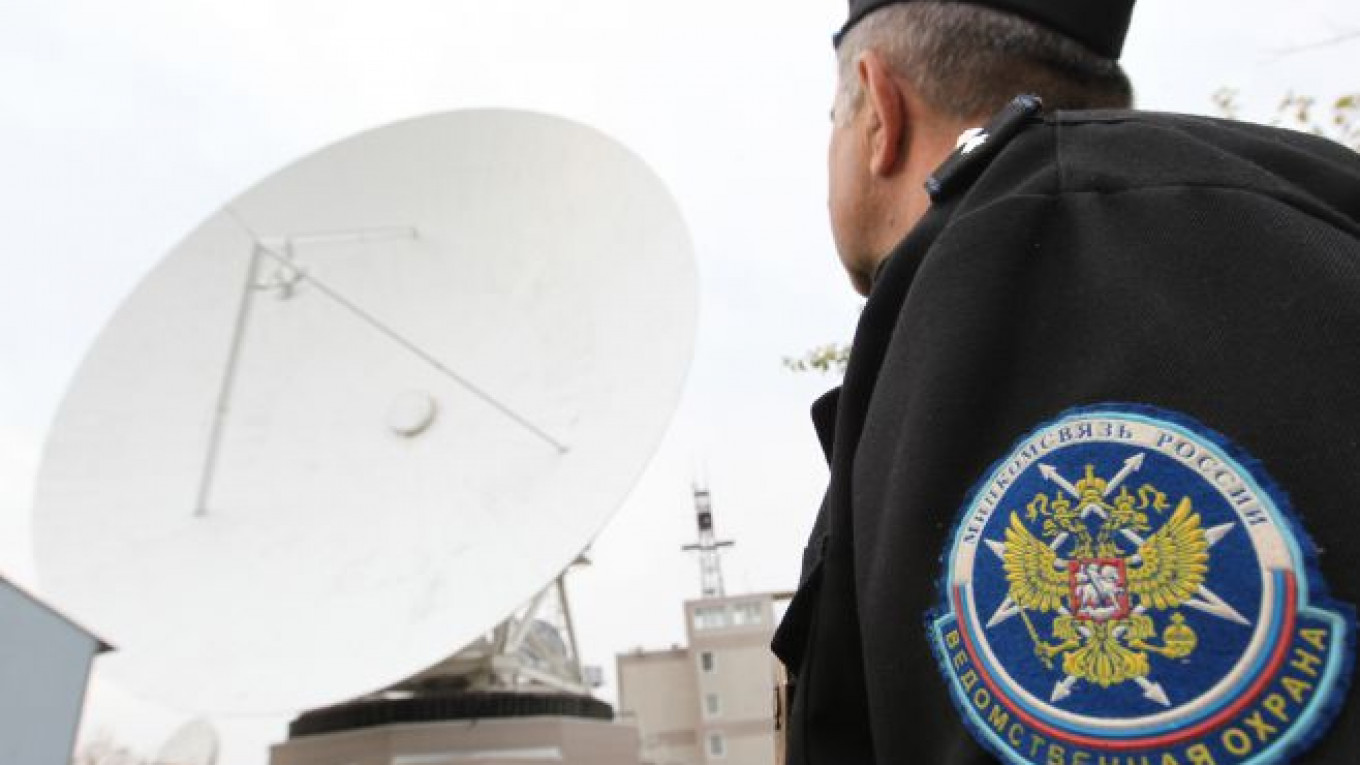Russia's space agency chief said that Russia did not need Western space technology, and pledged further cooperation with China amid concerns that additional U.S. sanctions could cripple the space industry and collaborative projects like the International Space Station, or ISS.
"We can independently perform any task," even if it means replacing Western components, said Oleg Ostapenko, head of the Federal Space Agency, or Roscosmos, in an interview with Vedomosti on Wednesday.
He said that Russia was still willing to continue its involvement in joint ventures, technology transfer and production, but only if such projects are "mutually beneficial" and not used as leverage, likely referring to the ongoing spat between Washington and Moscow over Russia's actions in Ukraine.
Space has already been dragged into that feud, however.
The U.S. State Department has instituted a ban on export licenses for advanced dual-use technology, namely satellites, preventing U.S. firms from purchasing launches on Russian rockets.
Yet, the most important commercial interaction between the U.S. and Russian space industries, the export of two types of Russian-made rocket engine, has not been affected, and Ostapenko said that the decision on whether to continue these exports lies with the U.S., not Russia.
One of the engines, the RD-180, is manufactured for use in the Atlas V rocket — the mainstay of the U.S. rocket fleet.
In early April, NASA was ordered to suspend cooperation with Roscosmos, though it was allowed to keep working with Russia on the ISS program. However, Ostapenko said during the interview that Roscosmos has not been notified of the change and that cooperation continued as normal.
In any case, ISS depends more on Russia than any of the other 14 nations involved in the program, Ostapenko said.
Russia's Soyuz rocket is currently the only way astronauts and cosmonauts can reach the station, and Ostapenko expressed confidence that Russia will continue to enjoy its dominance of the international launch market, despite the U.S.' ongoing work on an alternative to Soyuz.
U.S. commercial space firm SpaceX expects to complete work on a manned version of its Dragon spacecraft by 2015.
"We are absolutely competitive, and the backlog that we have and that we are accumulating enables us to claim superiority over our colleagues," Ostapenko said. "We are working hard to make our solutions competitive, including in terms of cost."
Russia is actively working with China, the newest player in the space industry, and will continue working with them on a number of programs, particularly in the field of deep space exploration, he added.
While Russia weighs up a recent NASA proposal to stretch the lifespan of the ISS to at least 2024, China, which has been left out of the ISS program, is working on deploying its first large, multi-module space station, and is also pursuing a manned moon program.
Contact the author at m.bodner@imedia.ru
A Message from The Moscow Times:
Dear readers,
We are facing unprecedented challenges. Russia's Prosecutor General's Office has designated The Moscow Times as an "undesirable" organization, criminalizing our work and putting our staff at risk of prosecution. This follows our earlier unjust labeling as a "foreign agent."
These actions are direct attempts to silence independent journalism in Russia. The authorities claim our work "discredits the decisions of the Russian leadership." We see things differently: we strive to provide accurate, unbiased reporting on Russia.
We, the journalists of The Moscow Times, refuse to be silenced. But to continue our work, we need your help.
Your support, no matter how small, makes a world of difference. If you can, please support us monthly starting from just $2. It's quick to set up, and every contribution makes a significant impact.
By supporting The Moscow Times, you're defending open, independent journalism in the face of repression. Thank you for standing with us.
Remind me later.






